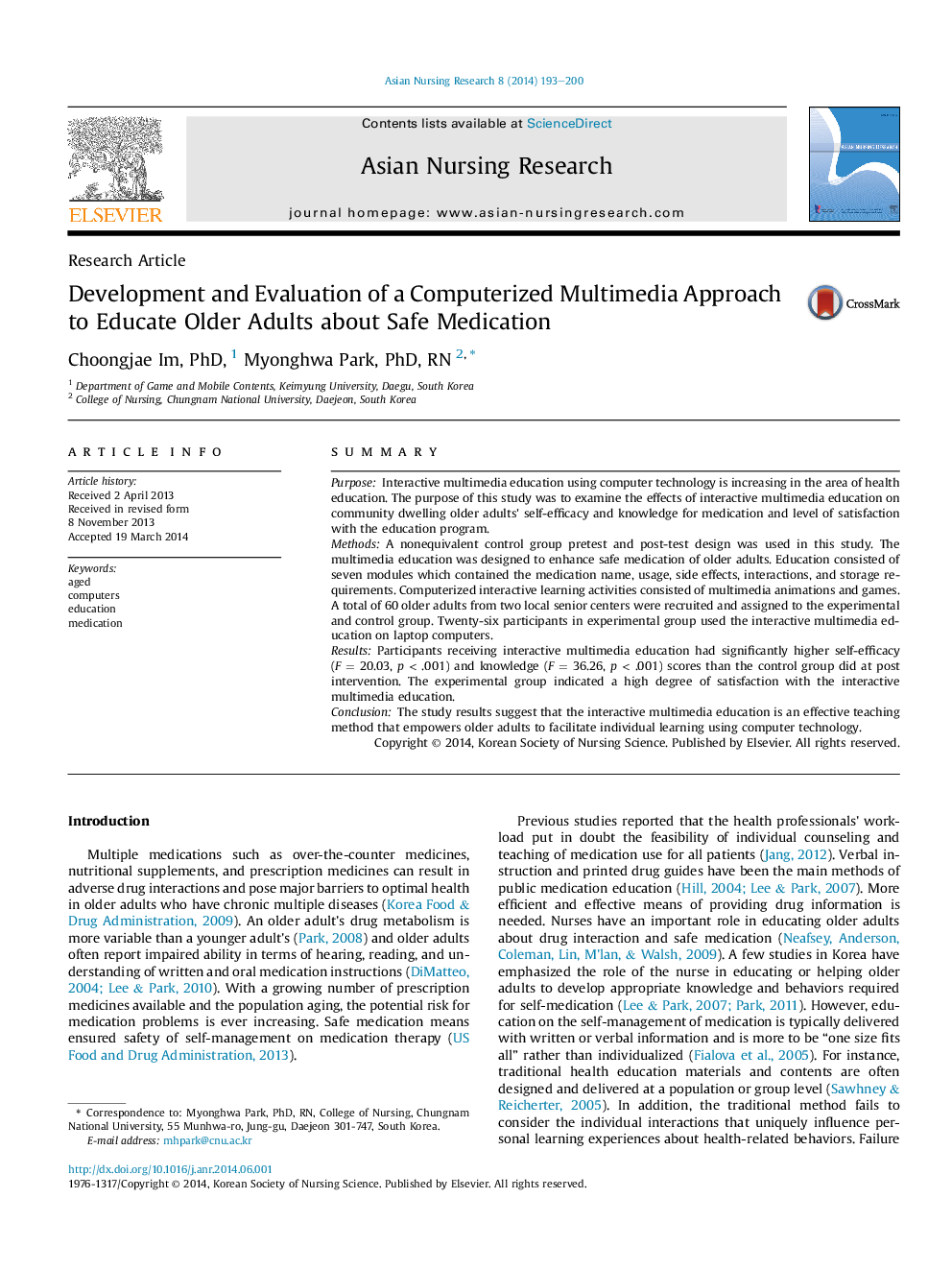| Article ID | Journal | Published Year | Pages | File Type |
|---|---|---|---|---|
| 2645044 | Asian Nursing Research | 2014 | 8 Pages |
SummaryPurposeInteractive multimedia education using computer technology is increasing in the area of health education. The purpose of this study was to examine the effects of interactive multimedia education on community dwelling older adults' self-efficacy and knowledge for medication and level of satisfaction with the education program.MethodsA nonequivalent control group pretest and post-test design was used in this study. The multimedia education was designed to enhance safe medication of older adults. Education consisted of seven modules which contained the medication name, usage, side effects, interactions, and storage requirements. Computerized interactive learning activities consisted of multimedia animations and games. A total of 60 older adults from two local senior centers were recruited and assigned to the experimental and control group. Twenty-six participants in experimental group used the interactive multimedia education on laptop computers.ResultsParticipants receiving interactive multimedia education had significantly higher self-efficacy (F = 20.03, p < .001) and knowledge (F = 36.26, p < .001) scores than the control group did at post intervention. The experimental group indicated a high degree of satisfaction with the interactive multimedia education.ConclusionThe study results suggest that the interactive multimedia education is an effective teaching method that empowers older adults to facilitate individual learning using computer technology.
